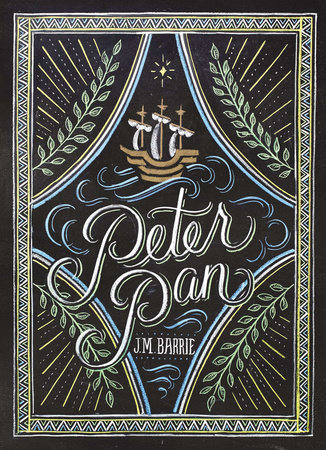 Peter Pan, J.M. Barrie
Peter Pan, J.M. Barrie
For many of us, as we grow and have kids and revisit our favorite childhood shows and books, we have the uncomfortable experience of realizing that many of our cherished memories are somewhere between slightly and hella problematic. Sometimes they just did not age at all, and we can toss them out with only mild regret, but sometimes there are pieces that one wants to share, and what is one to do?
Peter Pan has always been a bit, well, wrong. The boys get to be kids forever, but they’re desperate for a mother. Wendy’s dream is to go cook and clean for grown up boys. Literally everything with the Indians. In the movie, I remember at some point even in childhood thinking there were parts that weren’t great, but it was also recognizable as a pretend island. The island with “Indians” and pirates is meant to be the way a boy in the early 1900s would imagine it, and so there is an element of innocence to it. (I recognize there might be some self-justification in this.) In the book, however, everything is turned up a few hundred notches, which I had forgotten. The book is very clear that the only wish of Wendy, and any young girl, is, indeed to take care of boys. The book talks with all the enlightenment of a white British gentleman in 1902 of the attitudes of different races that one might find in Neverland.
And yet, there is much to enjoy in Peter Pan. There’s a reason it has endured, has been turned into dozens and dozens of plays and musicals and spinoffs. It’s a story of imagination and eternal childhood, heroics and loyalty and bravery, and all sorts of fun. Who doesn’t want to be a part of that? And it introduces us to absurdity and silliness and the new laws of a child’s imagination early on. I know at least one person who thinks the book is written in such a ridiculous way that no one could understand it, but of course it’s only hard to understand if you’re trying make grown up sense of everything. If you are going to enter into a new world, they might be a bit absurd, but surely not more than everything else in life.
And so I want to share this and read it with my kids. There will be many such decisions, how do I think through them one by one? What rules can I make for what I share with my kids? And for all if these books, I can find a justification. I can also fall back on the old standby that anyone excusing hazing or injustice or bad behavior can pull out. I read and watched and listened to all these things and I turned out just fine. Old bugs bunny cartoons didn’t turn me racist. And while I think justifying that things ended up okay in the end can’t justify present pain or injustice, when it comes to what I’m afraid might influence them, that’s different. Because again, I have concrete evidence that it’s not the primary influence. I grew up in a home where my parents were very open to talk about the messages we received from shows and from society, and where counter messages of equality and justice were hammered home. It was more than enough for all of us kids to know how to recognize and counter the negative messages and racist and gendered assumptions on our own.
I do not think that I can avoid all of the stereotypes, either in past shows or even current ones. Indeed, I have realized this year that 3rd grade is apparently the year where no matter how hard you try your kid will confidently announce which toys are girl toys and which toys or boy toys, and ask you if *really* there isn’t any such thing as boy color and girl colors. But I also know that, for all the wrongness we see today, it is a more egalitarian world than even the one I grew up in thirty years ago, and my children have also absorbed that. And so my decision making, I have decided, is how prevalent the messages are throughout the books, and how essential it is to the text. Can I answer the questions (and my middle child will ask why after every sentence) and salvage the story? Is the racism or sexism or cultural weirdness integral to the story? Or is it incidental, and we can talk about how things have changed and then move on? And sadly, for Peter Pan, I can’t. I think it could be written again without it; I think I can just barely find a way to gloss over it all in the movie, where the kids will be much more focused on the fights with Captain Hook; but this book, the one that we have, has all of our stereotypes and negativity of the early century throughout and are, in fact the entire basis of the story. Perhaps when they’re older we’ll pull it down, but for now it will sit, a pretty book on my shelf, challenging me to consider our history, and what to do with all of our history. A good challenge for the new year.
Filed under: Book Reviews, books, classics, literature | Tagged: book reviews, books, children's literature, classics, fiction, j. m. barrie, literature, peter pan, racism, sexism | Leave a comment »

